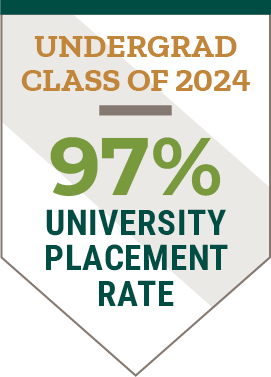
Unlock Secrets of the Mind
Psychologists study the workings of the mind and how and why people do the things they do. Psychology also unlocks a wealth of career possibilities, from a job in health sciences or healthcare to a leadership position in the boardroom. A Bachelor of Science in Psychology from Clarkson gives you an edge in any profession requiring you to work with people, understand them, solve problems, think critically and communicate.
Why Study Psychology at Clarkson?
At Clarkson, you won't just study psychology. You'll dive into it. Internships, research and other hands-on experience are an integral part of the program. Every psychology student spends at least one semester participating in a professional experience. Some students work alongside mental health professionals or school psychologists. Others volunteer for nonprofit groups or assist faculty with research.
You'll get to know those faculty really well during your time at Clarkson. Our low student-to-faculty ratio ensures you'll be more than a face in the crowd. Your professors will become trusted advisors as you build your plans for the future.
Many of our professors choose to work here because our department lets them balance teaching in their area of expertise with maintaining an active research program. You benefit from that, too. Since there are no graduate students in the department, faculty train and mentor undergrads to provide the research assistance they need in their lab.
What You'll Learn
Psychologists study the mind and behavior. Your classes at Clarkson will approach the topic from multiple perspectives, from understanding the workings of the brain to examining how people relate to each other and society as a whole.
Some of the classes you can take include:
- Abnormal Psychology
- Animal Learning and Cognition
- Clinical Psychology
- Cognitive Neuroscience
- Consumer Behavior
- Counseling Psychology: Theory and Practice
- Cultural Psychology
- Cyberpsychology
- Educational Psychology
- Health Psychology
- Learning and Memory
- Motivation and Emotion
- Neuroscience and Society
- Personal Relationships
- Psychology of Psychoactive Drugs
For more information, view the course catalogue for current program requirements, course numbers and credit hours




